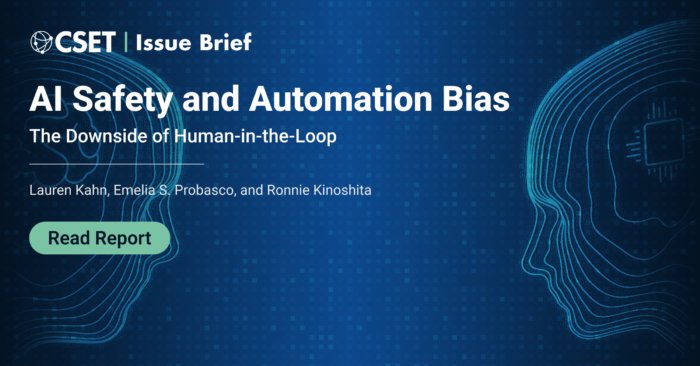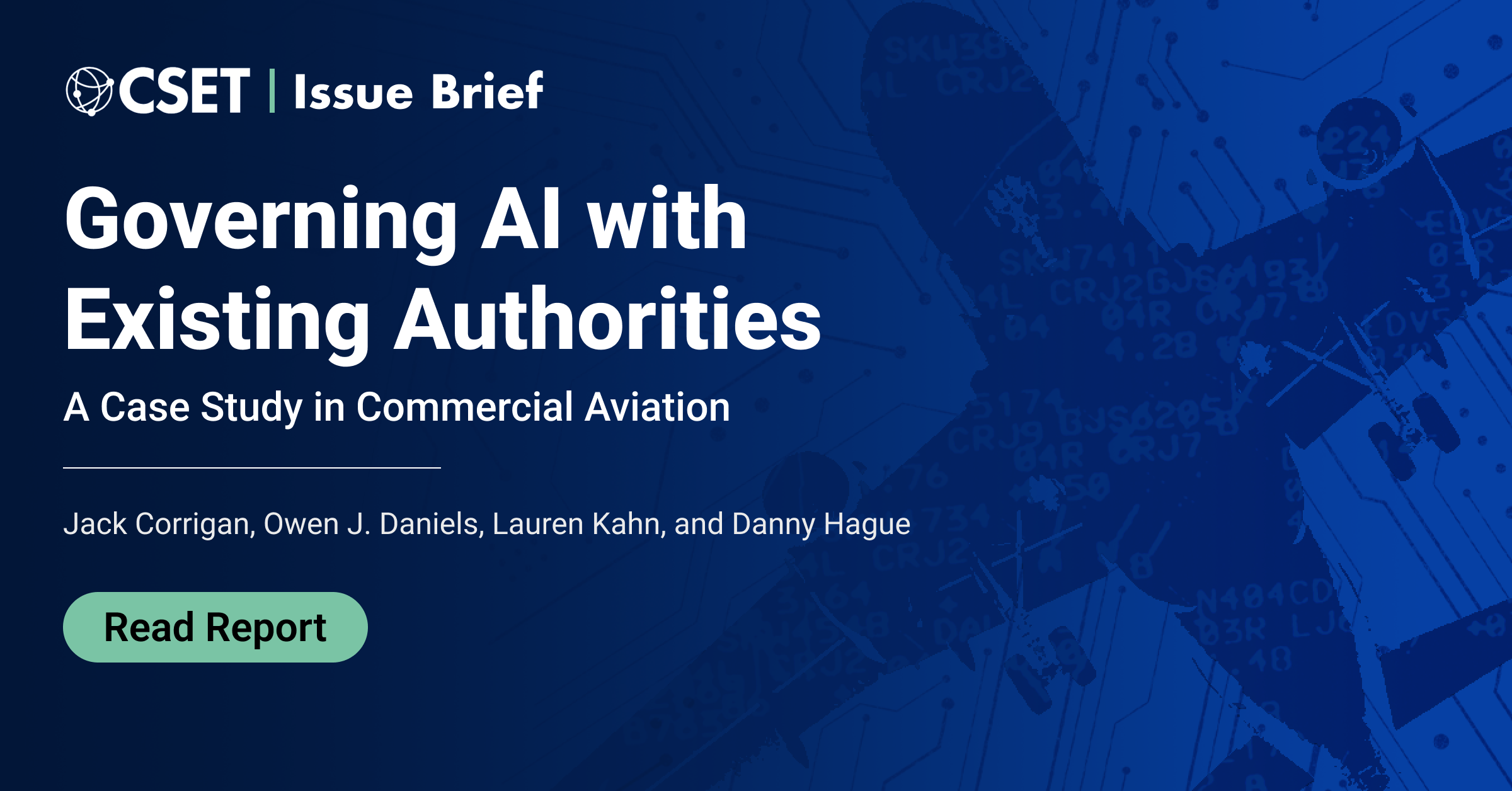AI Safety and Automation Bias | Center for Security and Emerging Technology
Automation bias is a critical issue for artificial intelligence deployment. It can cause otherwise knowledgeable users to make crucial and even obvious errors. Organizational, technical, and educational leaders can mitigate these biases through training, design, and processes. This paper explores automation bias and ways to mitigate it through three case studies: Tesla’s autopilot incidents, aviation incidents at Boeing and Airbus, and Army and Navy air defense incidents.| Center for Security and Emerging Technology




